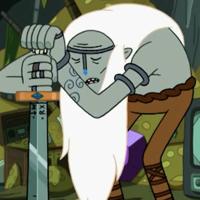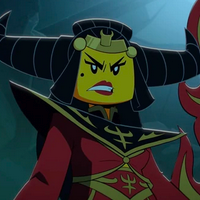Samurai Jack тип личности MBTI
Личность
"Какой тип личности является Samurai Jack? Samurai Jack - это тип личности ISFJ в mbti, 1w9 - sp/so - 162 в Enneagram, RCOAI в Big 5, ESI в Socionics."
i think people see Fi in him because he is ESI and type 1. but are his morals derived from himself, divorced from what is desireable for those around him (even if they may coincidentally overlap with what is generally considered desireable)? or does he orient himself to the objective lens of morality? for example in season 5 when jack is alone without his sword we him grappling with the objective sense of shame he feels from his ancestors and that is a recurring theme throughout season 5. that is, he is orienting to the shame conjured by external judgments (the object), not within his own subject. he is subjecting himself to objective metrics of shame and honor, which is an Fe lens. michael pierce writes of the Fe/Ti axis, “What this ultimately means is that you feel that morality, duty, or right and wrong, is something outside of you that you subject yourself to. You think in terms of rules which you must align with or accommodate into your life. You don't find anything valuable or desirable within yourself already: your value comes from the degree to which you align yourself with truth, causing the light to more brightly resonate within you. But the light does not come from you. It is for this reason that Fe/Ti has no compunction against accommodating others, changing themselves and their presentation for others. This isn't seen as insincere, as there is nothing within yourself to be sincere to, but there are things outside of yourself that you can be sincere to, and that includes helping others to feel comfortable [being good on their terms]. What this all comes down to is that you feel value, warmth, light, goodness, and desirability, is objective. It's something that can be measured and obtained, understood by all and accessible to all through the proper methods, which anyone can understand. It's something that resides in objects, which you must comprehend and harmonize with, and not something within you already.” additionally: “The Fe/Ti [...] type seeks to be "objective" (in the more traditional sense of the word) by providing a personally formulated rational justification for everything that they do. They do not regard personal feelings as justifications in-and-of-themselves, but only trust feelings that appear to them essentially impersonal -- which is a paradox, of course, for they are still "personal" insofar as feelings are necessarily personal, but they are impersonal insofar as they are, quite frankly, artificially generated for the sake of what they determine to be indisputably, rationally right. For while they only trust feelings that are impersonal in this way, they alternatively only trust reasoning that is purely personal. The philosophical epitome of this is Kant's notion of "duty" and the "good will", where he claims that truly ethical action must not be done out of any personal, ungrounded inclination (i.e. because you want to do it), but is only truly ethical insofar as it is done first and foremost because it is the truly rational thing to do (i.e. because you've discovered that you Must do it). Kant later adds that if you also happen to want to do it, all the better, but it is primitive and ignoble for that to be the primary reason. I expect that this is all rather abhorrent to the Te/Fi type ([especially Fi dominants]), because for them the most "objective" way to go about things is to wholeheartedly trust and actually work with one's personal feelings, helping them flourish as they were meant to. Reason is conversely treated as impersonal insofar as it has nothing to do with the individual or their interests -- it simply is. This view finds its epitome in Kierkegaard, who claims the exact opposite of Kant: truly ethical action is that which is done precisely because you truly do want to do it, and never because some facticity makes it necessary.” also jack doesn’t have the “crustiness” and “off-kilter”ness (hard to describe in words sorry) that is a characteristic impression for me of Ne/Si + Te/Fi types. (the combination of axes create an overall different emergent impression. Ne/Si + Fe/Ti is going to have a different feel from Ne/Si + Te/Fi due to how the functions subconsciously work together) for example i could easily type little sprite as being on the Te/Fi axis, while jack is clearly balanced Fe/Ti. https://youtu.be/Yfl39TqdI28&t=3m24s his reasoning is impartial and appeals to common denominator principles in Ti fashion. “she’s just another innocent who lost her way (due to aku’s influence on the world)” his subjective judgments are through the Ti lens in a way that is characteristic of IxFJ to the point that Te is bypassed entirely (subtertiary) since Ti stands in its place. - “you have lost. the battle is over.” - “what?!” - “you are my inner demon, you have been born from the hatred within me. but now, that hatred is no more. thus, you do not exist.” https://youtu.be/KXTLOCdkgRk&t=3m38s (in fact this video is ripe with clips for evidence)
биография
"Jack" (also known as Samurai Jack or simply The Samurai) is the alias taken by a Japanese warrior (with an unknown birth name) who acts as the titular protagonist of the cartoon Samurai Jack. Throughout the series, he is voiced by Phil LaMarr. Since youth, Jack trained in many different areas under numerous teachers in a variety of skills to defeat the demon Aku. However, Aku's dark magic sent Jack eons into the future, where he ruled all of Earth unopposed. Jack made it his mission to find a way back to his time and prevent Aku's dystopia. Throughout his travels, Jack became an infamous freedom fighter, protecting and aiding numerous civilizations and innocents terrorized by Aku's forces and other malevolent foes. Due to his many revolts against Aku's rule and being the only person capable of killing him (because of his divinely crafted sword) he was the most wanted man in the world. Source: https://samuraijack.fandom.com/wiki/Samurai_Jack_(character)























